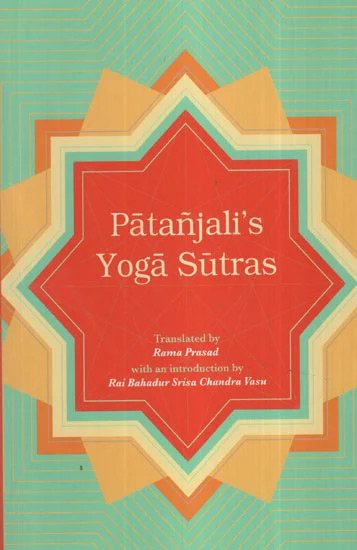Yoga-sutras (with Vyasa and Vachaspati Mishra)
by Rama Prasada | 1924 | 154,800 words | ISBN-10: 9381406863 | ISBN-13: 9789381406861
The Yoga-Sutra 1.20, English translation with Commentaries. The Yoga Sutras are an ancient collection of Sanskrit texts dating from 500 BCE dealing with Yoga and Meditation in four books. It deals with topics such as Samadhi (meditative absorption), Sadhana (Yoga practice), Vibhuti (powers or Siddhis), Kaivaly (isolation) and Moksha (liberation).
Sūtra 1.20
Sanskrit text, Unicode transliteration and English translation of Sūtra 1.20:
श्रद्धावीर्यस्मृतिसमाधिप्रज्ञापूर्वक इतरेषाम् ॥ १.२० ॥
śraddhāvīryasmṛtisamādhiprajñāpūrvaka itareṣām || 1.20 ||
śraddhā—faith. vīrya—energy, smṛti—memory, samādhi—trance, prajñā—discernment. pūrvakaḥ—having before, preceded by. itareṣām—for others.
20. For others it is preceded by faith, energy, memory, trance and discernment.
The Sankhya-pravachana commentary of Vyasa
[English translation of the 7th century commentary by Vyāsa called the Sāṅkhya-pravacana, Vyāsabhāṣya or Yogabhāṣya]
[Sanskrit text for commentary available]
It is brought about by the means of achievement for the Yogis. Faith is the pleasing wishful contact of mind with the object of pursuit. It sustains the Yogī, like a mother. Energy is born in him who pursues knowledge with faith. Memory comes to help when he is possessed of energy. On the appearance of memory, the mind ceases to be disturbed and passes into trance. When the mind is entranced, discrimination appeals, by which it knows an object as it is. By constant practice thereof and by desirelessness with reference to the object thereof, comes the ultra-cognitive trance.
The Gloss of Vachaspati Mishra
[English translation of the 9th century Tattvavaiśāradī by Vācaspatimiśra]
The author describes the sequence of the means of the achievement of this trance by a Yogī:—“For others it is preceded by faith, energy, memory, trance and discernment.”
But the devotees of the powers of sensation, action and thought are also possessed of faith. For this reason he says:—‘Faith is the pleasing wishful contact of the mind with the object of pursuit,’ and the object of the pleasing wishful pursuit of the mind here is the ultra-cognitive trance, as it comes into existence with reference thereto, after the nature of the objective world has been known by the Veda, by inference and by the teaching of the masters. There can be no wishful contact in the case of those who confound the powers of sensation, &c., with the self. In their case it is the opposite of the pleasing wishful contact, because their confusion has its origin in all-round forgetfulness. The powers of sensation, &c., cannot thus be objects of faith.
He explains why that alone is faith ‘It sustains the Yogī like a kind mother.’ The meaning is that it does not let him fall down in the wrong path, leading to the destruction of its object.
It is this particular wishfulness which gives birth to energetic effort guided towards the object wished for. Therefore he says ‘Energy is born in him when he pursues knowledge with faith.
Memory means keeping it present in the mind, thinking thereupon. ‘Undisturbed’ means ‘not only occasionally steady, not distracted.’
“Passes into trance” Trance is here the trance which is described as a branch of Yoga. The restraints and observances also are indicated, inasmuch as trance is mentioned there as coming after them. Thus he who has made all the branches of Yoga his own, reaches the stage of cognitive trance. This is what he says:—“When the mind is entranced.” That is to say, when the highest limit of intellection is reached.
He explains that the ultra-cognitive is born when the cognitive precedes it:—‘By the constant practice thereof and by desirelessness with reference to the objects thereof at each stage comes the ultra-cognitive trance.’ It is that which is the means of achieving absolute freedom. Because the suppression which comes after the mainfestation of the knowledge of the distinct nature of the Puruṣa and the will to-know, is the final suppression which renders it unnecessary for the mind to go on working; inasmuch as it has now done the whole of its work and fulfilled the purpose of its existence.
